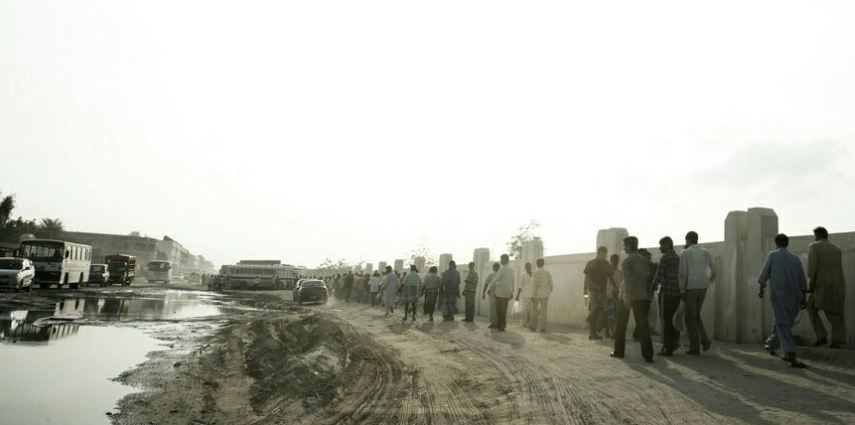As wealthy Gulf states face off over long simmering diplomatic differences, foreign workers in both countries are at risk of bearing the brunt of the dispute.
An ongoing row in the Gulf over Qatar’s alleged links to terrorist groups, with the wealthy nation blockaded by a group of neighbours led by Saudi Arabia and the UAE, is in danger of causing a humanitarian crisis for thousands of foreign workers trapped in the region by the repressive “kafala” sponsorship system.
Foreign workers in both Qatar and Saudi Arabia are subject to controls on their movement, with employers and government able to block them from going home.
In the wake of the Saudi-led blockade of Qatar, the government has responded with a widespread cancellation of exit visas, leaving workers to face the ever-growing cost of living as sanctions slash the availability of basic foods.
While Qatari citizens and some wealthy Western workers will be able to sit tight for a while, many workers, such as those employed in the massive construction effort surrounding the 2022 World Cup, can be paid as little as £55 per week, with no chance of riding out an economic storm.
The first warnings signs came when workers accompanying Qataris in Saudi Arabia were trapped after their employers were forced to leave. No one is quite sure which of the two countries is most responsible for the situation, but with both operating exit visas requirements under their versions of kafala, workers can suddenly find themselves – through no fault of their own – completely stuck and unable to earn any money to keep themselves alive.
If the dispute rumbles on, more and more companies may reconsider their investment in Qatar, with the potential to leave huge numbers of international workers stranded and jobless.
Over the last few years, campaigns by unions and human rights groups have slowly pushed the government of Qatar into limited reforms to protect workers, but few have been viewed by campaigners as going far enough. Some of the best progress has been reserved for the thousands of workers building World Cup stadiums, after the international building workers’ union (BWI) struck a deal with the cup organisers to inspect the construction work and keep in regular contact with workers’ committees.
But this latest crisis threatens even that glimmer of hope, as the government seems at best oblivious to, and at worse uncaring of, the impact on its vast population of foreign workers. Qatar is a bad enough place to work – it’s a worse place to be workless and trapped. Whether temporarily or (preferably) permanent, it’s time for kafala’s exit visas to be scrapped.
The TUC has written to the Foreign Secretary urging him to press both Qatar and Saudi Arabia to remove exit visa restrictions and prevent working people becoming the real victims of the dispute.
(this blog was originally published on the TUC’s “Touchstone“)

